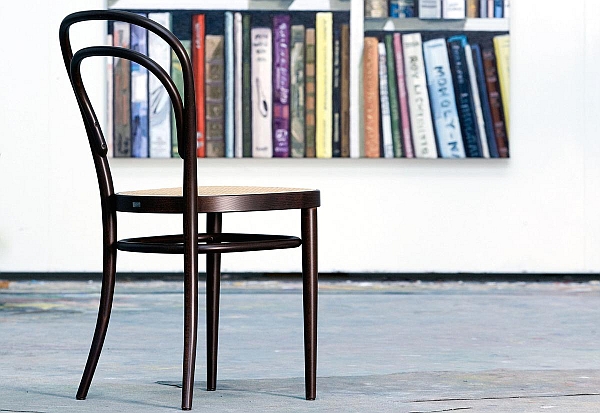"The essence of the Thonetschen invention is that when bending a steamed piece of wood the neutral layer is relocated to the upper, convex, surface of the curved wood. If any cylindrical or prismatic body is bent, the upper layers are extended, the lower, concave, layer compressed, so shortened, and only one layer, namely that which passes through the centre of mass of the cross section, remains in the original length. Thus in this type of ordinary wood bending the upper, convex, lying part is stretched and tends to splinter. Thonet firmly attaches to that side of the not yet bent piece of wood which should ultimately be outermost, a sheet-metal strip; that the metal strip undergoes but a negligible extension during bending, the wood situated directly below the metal strip is forced to compress, to shorten. Therein alone exists the essence of the Thonetschen invention."
So surmised in 1875 Professor W.F. Exner from the Technologisches Gewerbemuseum Vienna the nature of the warm 3D wood bending process for which Michael Thonet received a patent on July 10th 1856. And which is still practised by Thonet to this day.
Or put another way:
Or yet another way:
